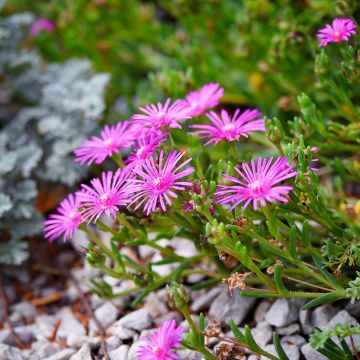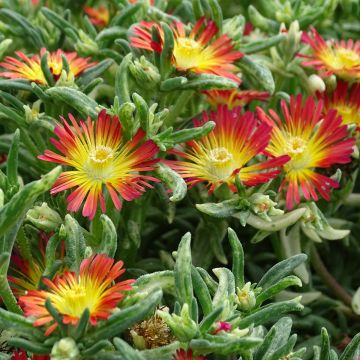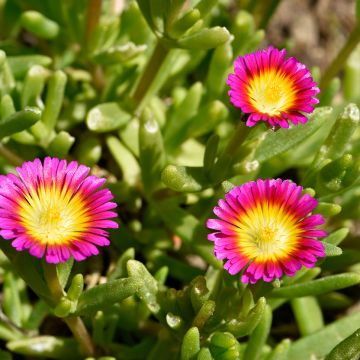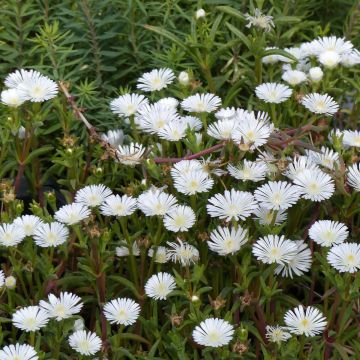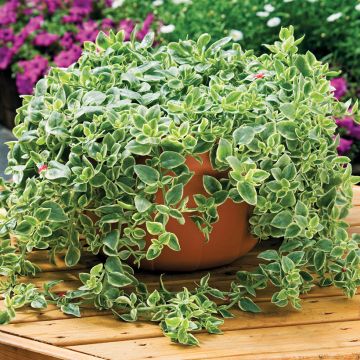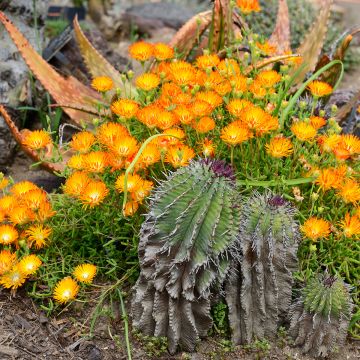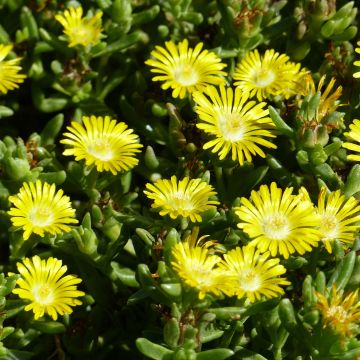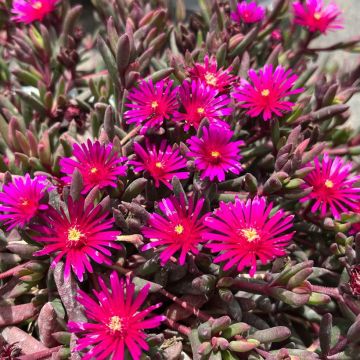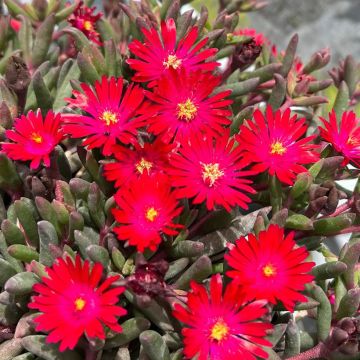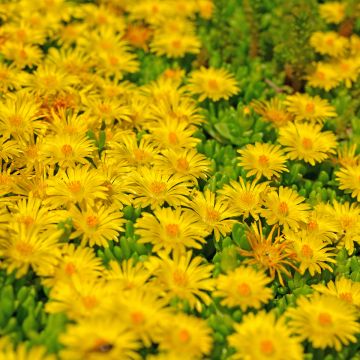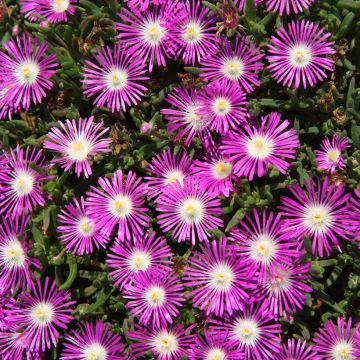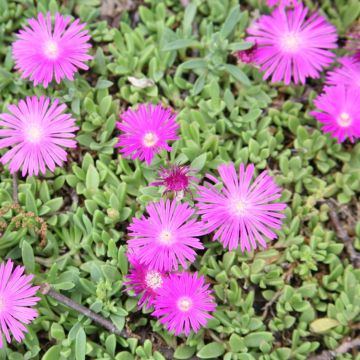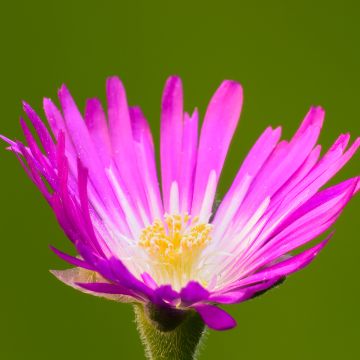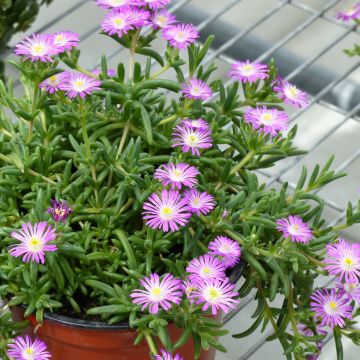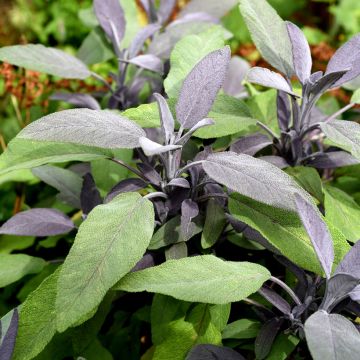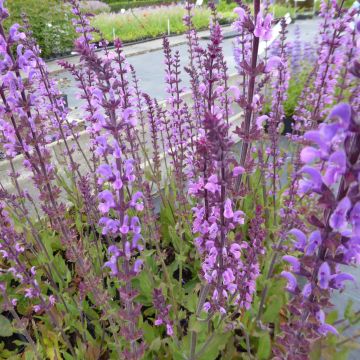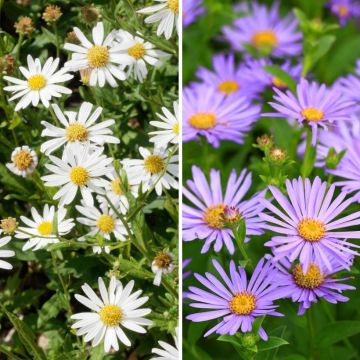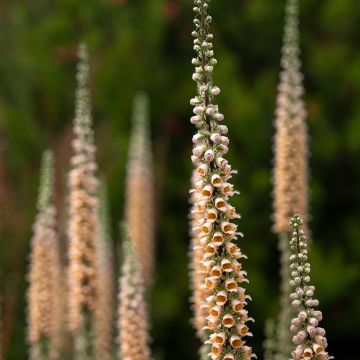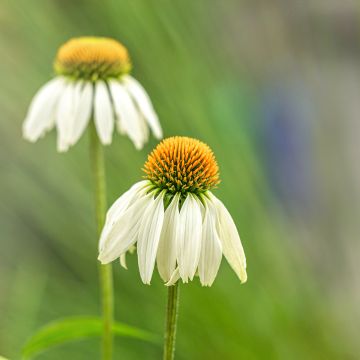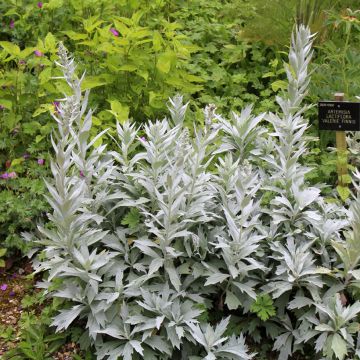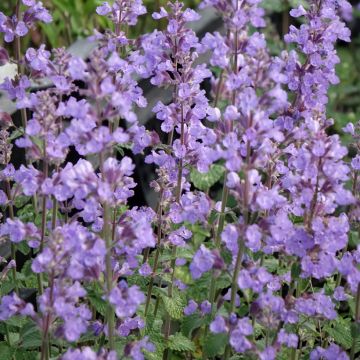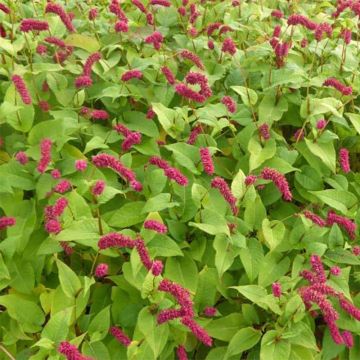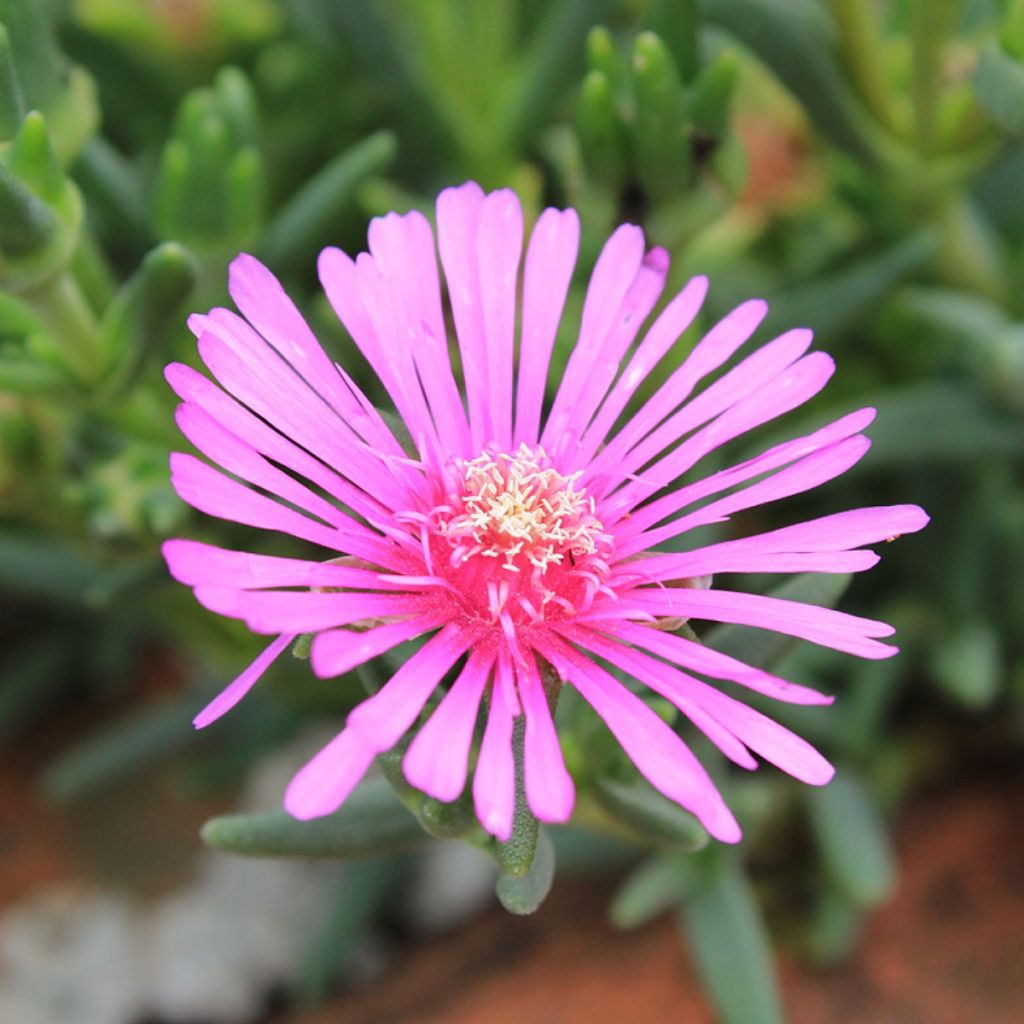

Lampranthus auriantacus Fleurs roses - Ficoïde orange à fleurs roses
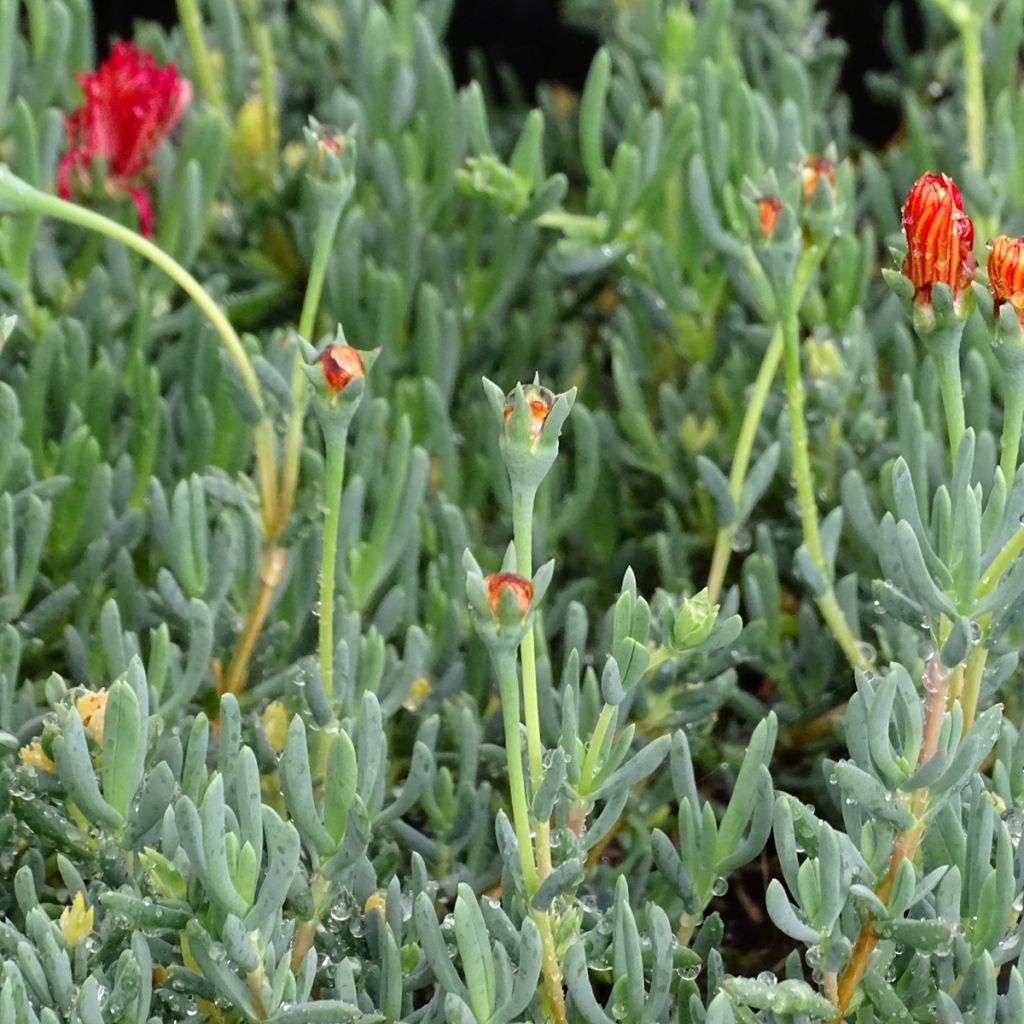

Lampranthus aurantiacus Fleurs roses - Ficoïde orange à fleurs roses
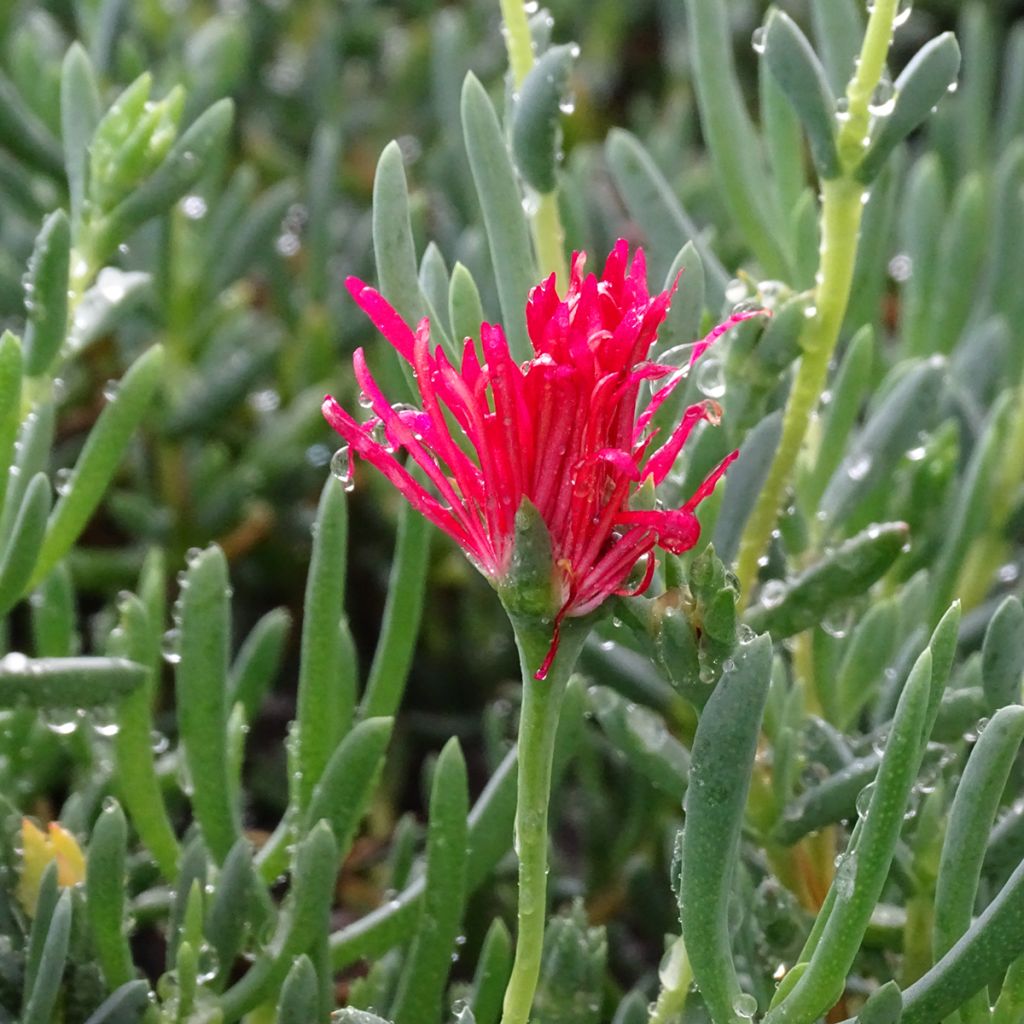

Lampranthus aurantiacus Fleurs roses - Ficoïde orange à fleurs roses
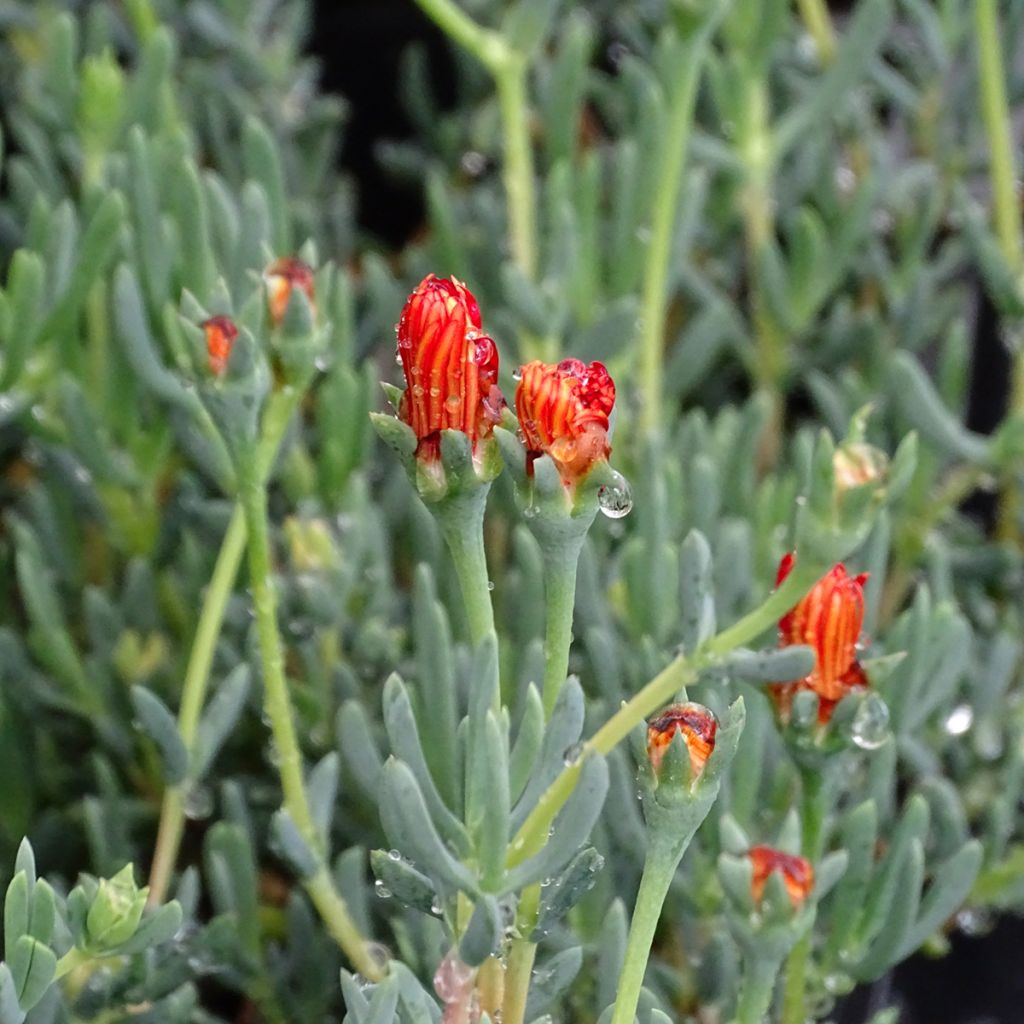

Lampranthus aurantiacus Fleurs roses - Ficoïde orange à fleurs roses
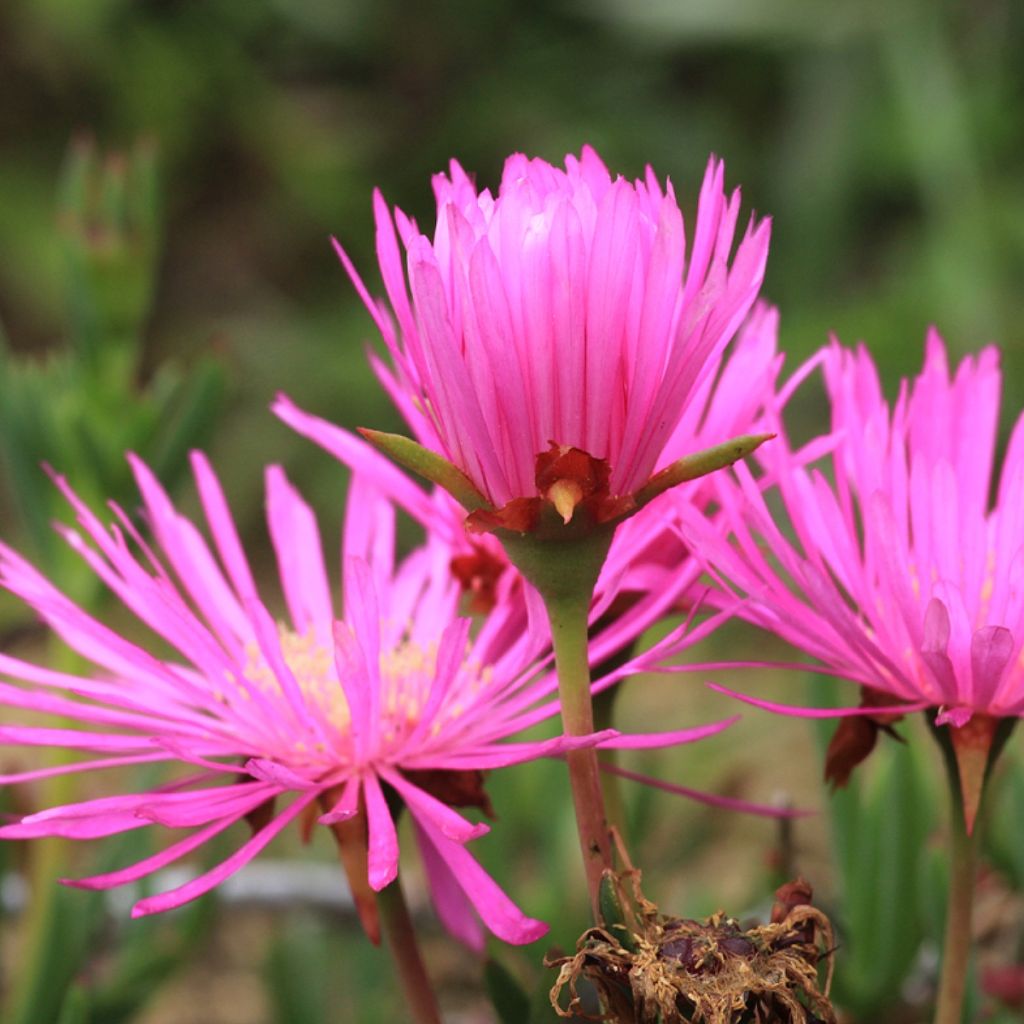

Lampranthus auriantacus Fleurs roses - Ficoïde orange à fleurs roses
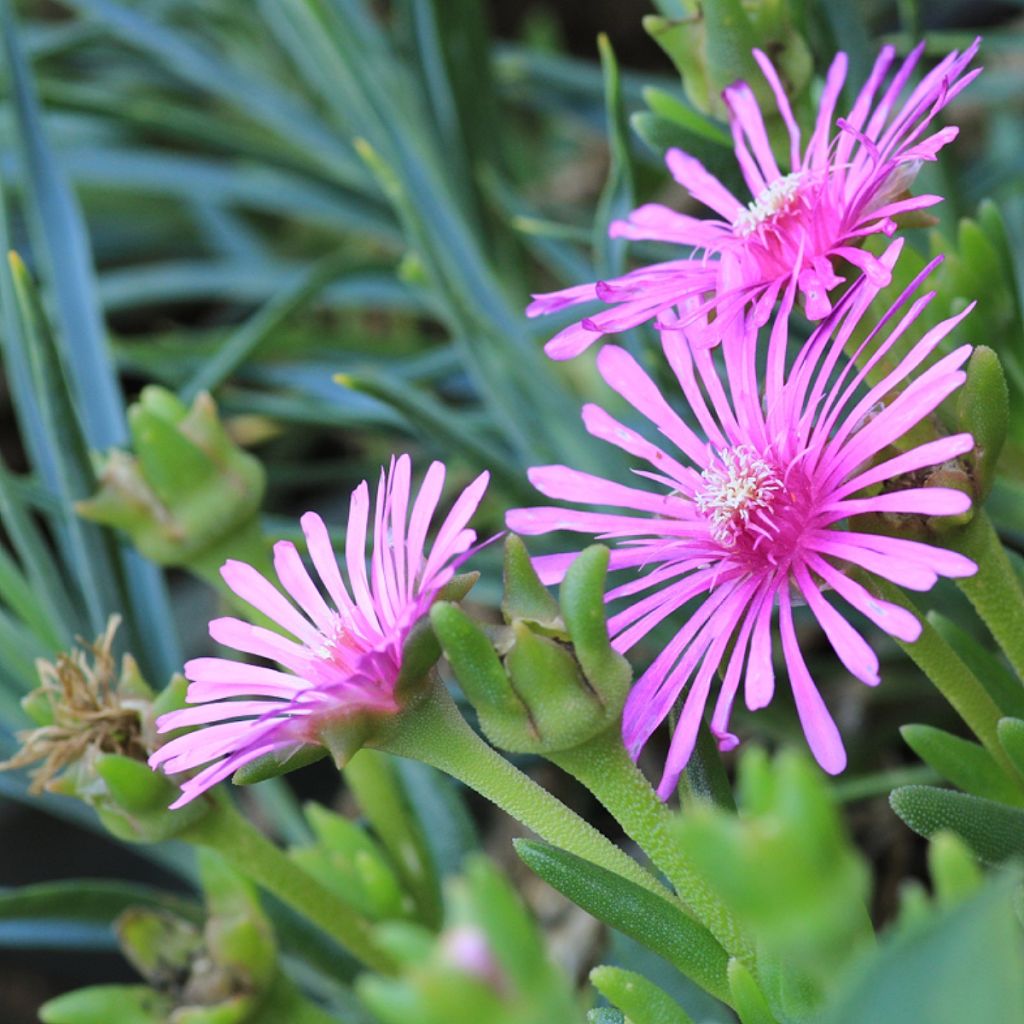

Lampranthus auriantacus Fleurs roses - Ficoïde orange à fleurs roses
Lampranthus aurantiacus Pink Flowers
Lampranthus aurantiacus Fleurs roses
Orange Ice Plant
Arrivée un peu fatiguée du trajet, mais jolie reprise. - Bright red flowers
Laura, 01/09/2022
Special offer!
Receive a €20 voucher for any order over €90 (excluding delivery costs, credit notes, and plastic-free options)!
1- Add your favorite plants to your cart.
2- Once you have reached €90, confirm your order (you can even choose the delivery date!).
3- As soon as your order is shipped, you will receive an email containing your voucher code, valid for 3 months (90 days).
Your voucher is unique and can only be used once, for any order with a minimum value of €20, excluding delivery costs.
Can be combined with other current offers, non-divisible and non-refundable.
Why not try an alternative variety in stock?
View all →This plant carries a 12 months recovery warranty
More information
We guarantee the quality of our plants for a full growing cycle, and will replace at our expense any plant that fails to recover under normal climatic and planting conditions.

Would this plant suit my garden?
Set up your Plantfit profile →
Description
Lampranthus aurantiacus Pink Flowers is a variety of Orange Ice Plant whose pink flowers sparkle in the sun. This perennial with small succulent leaves, similar to delosperma and drosanthemum, is another South African plant that stands out for the inimitable brightness of its small daisies whose shiny petals play with the light. The spectacle of its flowering vegetation is renewed for a long period. It loves the sun, the seaside, and poor soils, and it tolerates very dry summers. It is a very sensitive plant. Grow it as an annual or in pots to be overwintered.
Lampranthus aurantiacus belongs to the Aizoaceae family. This family is represented by a large number of succulent perennials native to South Africa, East Africa, and Madagascar, which are perfectly suited to hot and dry climates and coastal conditions. They settle among stones, rocks, or dry banks, as long as they find a bit of substrate. If your region is subject to frost, plant Lampranthus aurantiacus in a pot or container that you can bring indoors in winter.
The orange ice plant forms slightly creeping clumps, reaching about 35cm (14in) in height and 50 to 60cm (20 to 24in) in width. This plant develops slender stems covered with small, elongated, fleshy leaves, with a triangular section. They are blue-green and arranged in an opposite manner. The initially green stems become woody and brown with age. The flowering begins in March-April in mild climates and lasts for several weeks, but dries up in case of prolonged drought. The vegetation disappears under a mass of daisy-like flowers, 1.5cm (1in) in diameter. These flowers have very thin and elongated petals that surround a yellow centre. They only open in the sun.
If you like delosperma, you will succumb to the charm of ice plants. The 'Pink Flowers' cultivar is a rock garden plant par excellence. It thrives in coastal gardens alongside sedums, sempervivums, and other small perennials such as South African daisies (felicia, osteospermum, dimorphoteca). Containers composed of ice plants and delosperma from the 'Wheels of Wonder' series with various colours will create a dazzling multicoloured carpet that is easy to maintain for a very long period.
Report an error about the product description
Lampranthus aurantiacus Pink Flowers in pictures
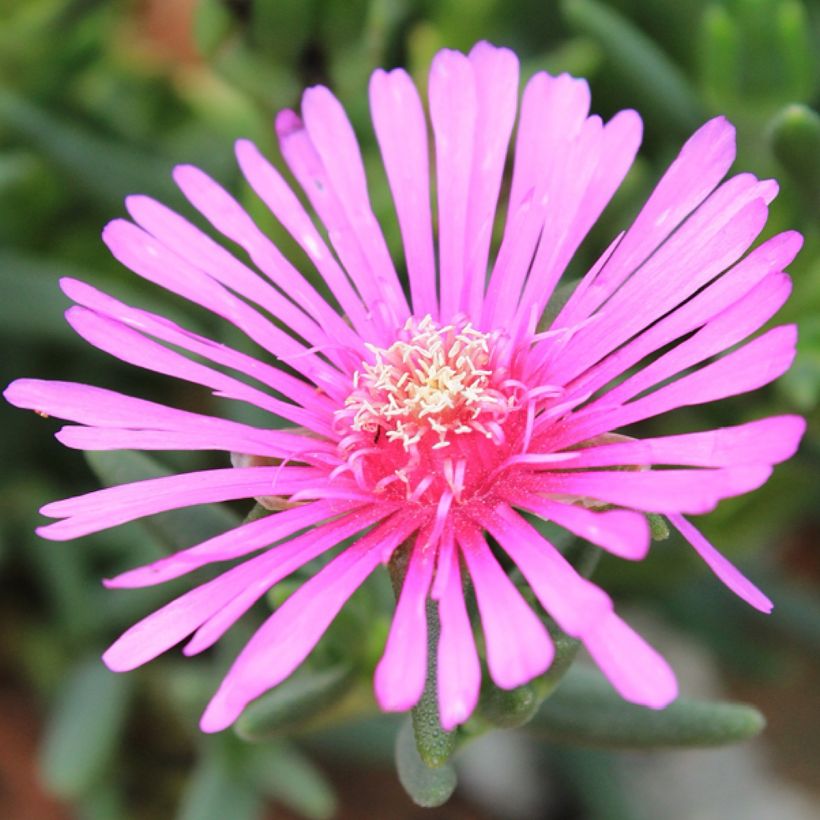

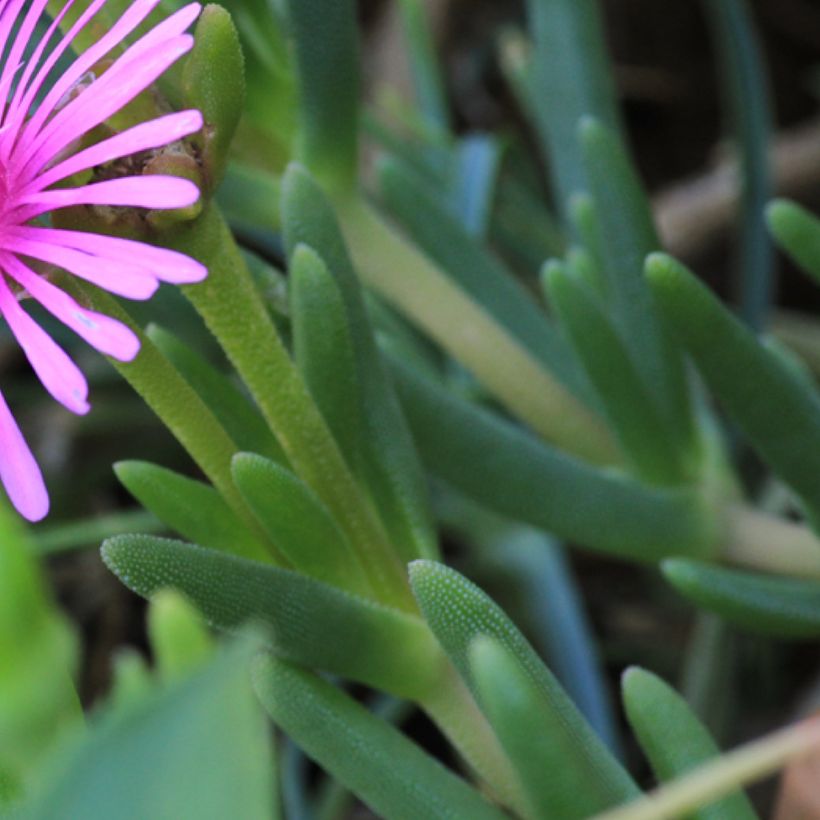

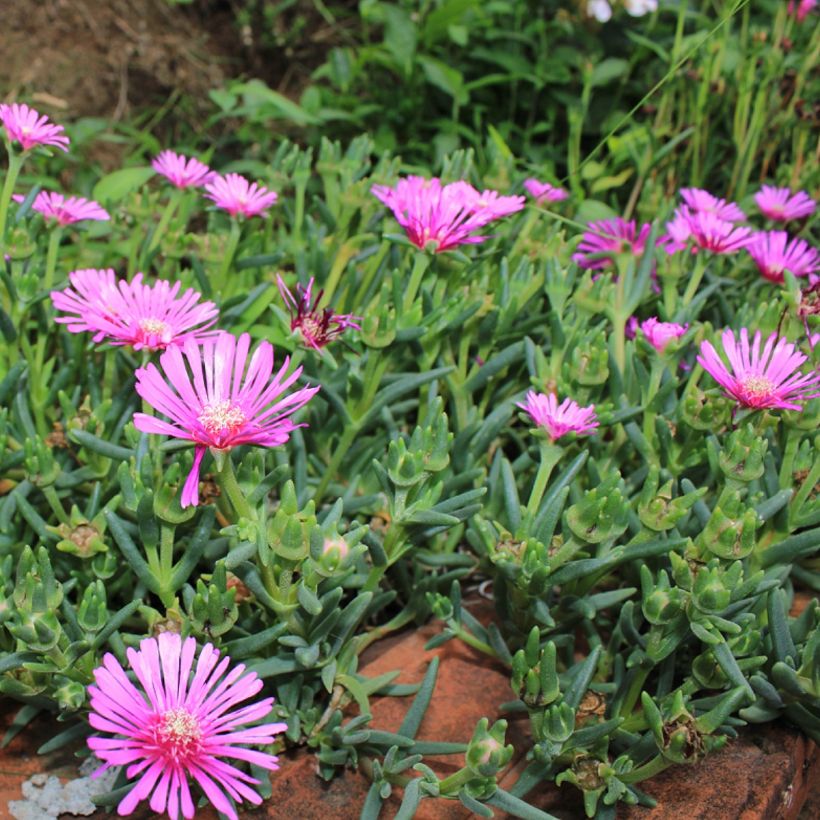

Flowering
Foliage
Plant habit
Botanical data
Lampranthus
aurantiacus
Fleurs roses
Aizoaceae
Orange Ice Plant
South Africa
Other Delosperma
View all →Planting and care
Plant in spring in well-drained, dry, sandy, or even stony soil. It appreciates low walls, rockeries, and well-exposed banks. If your region is subject to frost, grow it in a pot or in a planter which can be overwintered in a frost-free bright but unheated room). The hardiness of this plant is evaluated at -2°C (28.4°F) at the end of the night, possibly a little more in very dry soil.
A sunny and warm location is essential for it to feel comfortable and flower abundantly. A few waterings in case of prolonged drought will be welcome to extend the flowering period. You can remove faded flowers to encourage their renewal. Root division may be necessary after a few years, depending on its location.
Make sure it is not covered with dead leaves from nearby trees if they are likely to rot. Similarly, it does not appreciate having its roots constantly wet.
Planting period
Intended location
Care
-
, onOrder confirmed
Reply from on Promesse de fleurs
Similar products
Haven't found what you were looking for?
Hardiness is the lowest winter temperature a plant can endure without suffering serious damage or even dying. However, hardiness is affected by location (a sheltered area, such as a patio), protection (winter cover) and soil type (hardiness is improved by well-drained soil).

Photo Sharing Terms & Conditions
In order to encourage gardeners to interact and share their experiences, Promesse de fleurs offers various media enabling content to be uploaded onto its Site - in particular via the ‘Photo sharing’ module.
The User agrees to refrain from:
- Posting any content that is illegal, prejudicial, insulting, racist, inciteful to hatred, revisionist, contrary to public decency, that infringes on privacy or on the privacy rights of third parties, in particular the publicity rights of persons and goods, intellectual property rights, or the right to privacy.
- Submitting content on behalf of a third party;
- Impersonate the identity of a third party and/or publish any personal information about a third party;
In general, the User undertakes to refrain from any unethical behaviour.
All Content (in particular text, comments, files, images, photos, videos, creative works, etc.), which may be subject to property or intellectual property rights, image or other private rights, shall remain the property of the User, subject to the limited rights granted by the terms of the licence granted by Promesse de fleurs as stated below. Users are at liberty to publish or not to publish such Content on the Site, notably via the ‘Photo Sharing’ facility, and accept that this Content shall be made public and freely accessible, notably on the Internet.
Users further acknowledge, undertake to have ,and guarantee that they hold all necessary rights and permissions to publish such material on the Site, in particular with regard to the legislation in force pertaining to any privacy, property, intellectual property, image, or contractual rights, or rights of any other nature. By publishing such Content on the Site, Users acknowledge accepting full liability as publishers of the Content within the meaning of the law, and grant Promesse de fleurs, free of charge, an inclusive, worldwide licence for the said Content for the entire duration of its publication, including all reproduction, representation, up/downloading, displaying, performing, transmission, and storage rights.
Users also grant permission for their name to be linked to the Content and accept that this link may not always be made available.
By engaging in posting material, Users consent to their Content becoming automatically accessible on the Internet, in particular on other sites and/or blogs and/or web pages of the Promesse de fleurs site, including in particular social pages and the Promesse de fleurs catalogue.
Users may secure the removal of entrusted content free of charge by issuing a simple request via our contact form.
The flowering period indicated on our website applies to countries and regions located in USDA zone 8 (France, the United Kingdom, Ireland, the Netherlands, etc.)
It will vary according to where you live:
- In zones 9 to 10 (Italy, Spain, Greece, etc.), flowering will occur about 2 to 4 weeks earlier.
- In zones 6 to 7 (Germany, Poland, Slovenia, and lower mountainous regions), flowering will be delayed by 2 to 3 weeks.
- In zone 5 (Central Europe, Scandinavia), blooming will be delayed by 3 to 5 weeks.
In temperate climates, pruning of spring-flowering shrubs (forsythia, spireas, etc.) should be done just after flowering.
Pruning of summer-flowering shrubs (Indian Lilac, Perovskia, etc.) can be done in winter or spring.
In cold regions as well as with frost-sensitive plants, avoid pruning too early when severe frosts may still occur.
The planting period indicated on our website applies to countries and regions located in USDA zone 8 (France, United Kingdom, Ireland, Netherlands).
It will vary according to where you live:
- In Mediterranean zones (Marseille, Madrid, Milan, etc.), autumn and winter are the best planting periods.
- In continental zones (Strasbourg, Munich, Vienna, etc.), delay planting by 2 to 3 weeks in spring and bring it forward by 2 to 4 weeks in autumn.
- In mountainous regions (the Alps, Pyrenees, Carpathians, etc.), it is best to plant in late spring (May-June) or late summer (August-September).
The harvesting period indicated on our website applies to countries and regions in USDA zone 8 (France, England, Ireland, the Netherlands).
In colder areas (Scandinavia, Poland, Austria...) fruit and vegetable harvests are likely to be delayed by 3-4 weeks.
In warmer areas (Italy, Spain, Greece, etc.), harvesting will probably take place earlier, depending on weather conditions.
The sowing periods indicated on our website apply to countries and regions within USDA Zone 8 (France, UK, Ireland, Netherlands).
In colder areas (Scandinavia, Poland, Austria...), delay any outdoor sowing by 3-4 weeks, or sow under glass.
In warmer climes (Italy, Spain, Greece, etc.), bring outdoor sowing forward by a few weeks.































